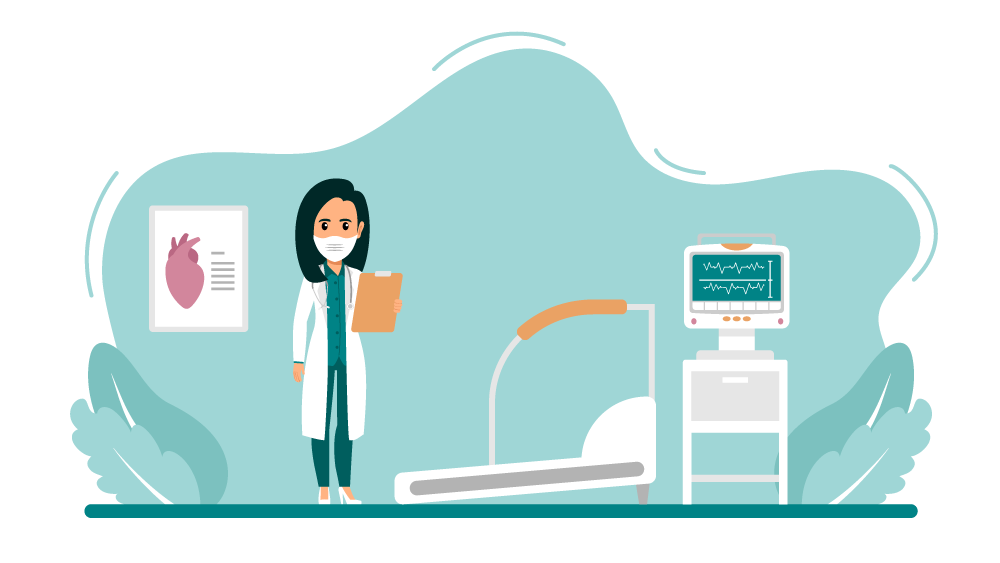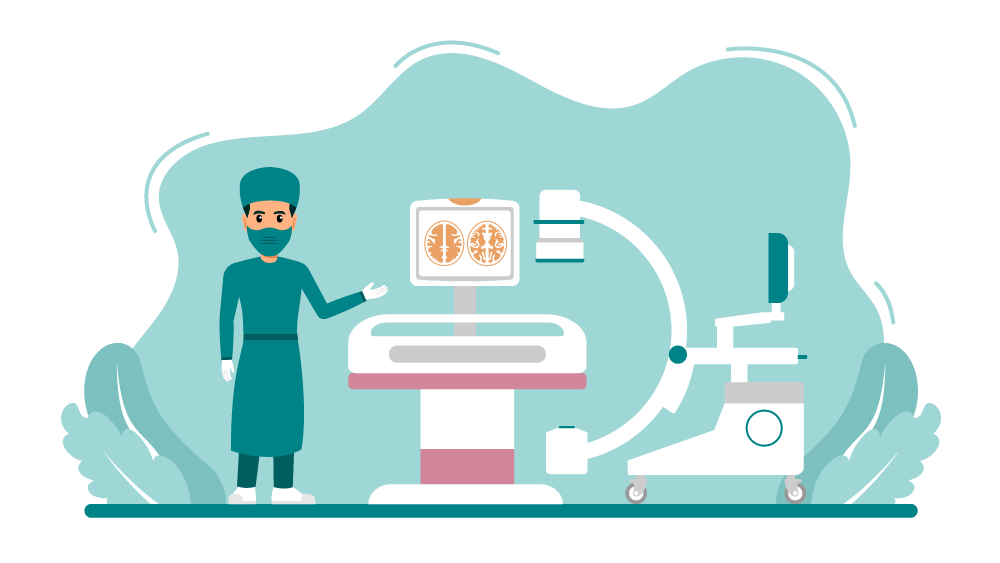According to the U.S. Bureau of Labor Statistics, there are more than 25,000 licensed clinical psychiatrists in the United States.
From outpatient care centers to substance abuse hospitals, these professionals work in various locations across every region. Are you interested in pursuing a career in this challenging yet rewarding path?
If so, it helps to understand the different types of psychiatrist jobs that are available. Depending on your level of education and experience, you can find work in many places, helping patients from all walks of life. Today, we’re breaking down the roles and responsibilities you can expect as you take your next step forward.

What Is Psychiatry?
Put simply; psychiatry is a branch of medicine that focuses primarily on preventing, diagnosing, and treating a range of disorders that span the following sectors:
- Mental
- Behavioral
- Emotional
While a physician is concerned mostly with your physical health, a psychiatrist specializes in mental health. An estimated 26% of Americans age 18 and older currently suffer from mental health disorders, making this one of the most necessary and in-demand professions.
Psychiatrists vs. Psychologists
It’s easy to get psychiatrists confused with psychologists, as the two names are so similar. While areas of their work overlap, there is a primary difference that separates these two careers.
A psychiatrist is specially trained to prescribe medication to someone who has a mental disorder. They can also perform psychotherapy procedures to optimize their mental health. These are medical doctors who have completed medical school and a residency.
Conversely, psychologists do not prescribe medication as a form of treatment, focusing instead on counseling and other forms of nonmedical support. They might receive advanced training and continuing education, but they’re focused on using psychotherapy to help treat the clients who visit them. Psychologists usually have an advanced degree in clinical psychology, as well as extensive clinical training and practice.
Education and Professional Training Required
Anyone interested in pursuing this job must begin by taking many of the same steps required to become a physician. At its core, psychiatry is an esteemed healthcare position. Let’s take a look at the path you’ll follow before you can begin practicing.
Academic Studies
First, you’ll complete your bachelor’s degree at an accredited college or university. Then, you’ll complete another four years of medical school. From there, you’ll be able to pursue your Doctor of Osteopathic Medicine (DO) or Doctor of Medicine (MD) degree. Once you complete medical school, you’ll take a written examination to become licensed in your state to practice medicine.
Hands-On Residencies
While the educational requirements are extensive, they aren’t enough on their own. In addition to your academic studies, you’ll also be required to complete a four-year psychiatric residency program once you’ve earned your doctoral degree. This hands-on experience allows you to work within a real healthcare setting to gain firsthand knowledge in your field.
Usually, your first year of residency training will be held in a hospital setting. Here, you’ll work with patients who are suffering from a range of different medical conditions.
Then, you’ll spend at least three more years honing in on the specifics of mental health treatment. This includes learning all about the different forms of psychotherapy and how to use available treatments, including psychiatric medications. These years of training will occur in a variety of settings, including:
- Inpatient facilities
- Outpatient facilities
- Emergency rooms
Once your residency is complete, you can begin your career in general psychiatry. However, there is one extra step you can pursue to boost your professional standing.
It isn’t required, but most psychiatrists choose to achieve board certification soon after completing their studies. To become “board-certified” by the American Board of Psychiatry and Neurology, you’ll take both a written and an oral examination. Your certification will last 10 years, at which point you’ll need to be re-certified.
Niche Specializations
Many psychiatric experts choose to specialize in a particular field, such as adolescent psychiatry or addiction psychiatry. This allows them to gain a higher level of expertise, a greater number of job prospects, and subsequently, a higher salary.
If you go this route, you’re required to complete a fellowship in that specific niche. A typical fellowship usually lasts between one and two years.
Understanding Psychiatrist Jobs: What Does a Psychiatrist Do?
Are you asking yourself, “Should I become a psychiatrist?” If so, it’s important to understand some of the main tasks you’ll be responsible for performing once you step into this role. Here are a few of the duties you can expect.
Perform Client Evaluations
When a client requests an appointment with a psychiatrist, the psychiatrist’s job is to thoroughly evaluate that client to understand the root of their mental illness more clearly. By the time they’re ready to see patients officially, they have received the academic and clinical training required to understand how emotional illnesses work. They also know how these conditions are connected to other medical conditions.
A few of the methods they can use to evaluate each client include:
- Formal psychological evaluation
- Evaluating genetics and family history
- One-on-one conversation
- Physical exam
- Laboratory tests
From these evaluations, the psychiatrist can gauge the type and extent of the disorders that could be affecting the client’s quality of life. Some of the most common disorders include:
- Anxiety and depressive disorders
- Feeding and eating disorders
- Substance-related disorders
- Personality disorders
- Sleep disorders
- Sexual dysfunctions
These are only a few of the issues that could be at work. A psychiatrist will be well-versed in every condition and will be able to guide the client along the proper route of treatment. Often, more than one visit is required to understand the issue and all of its nuances completely.
Develop Custom Treatment Plans
As you might expect, there isn’t a one-size-fits-all type of treatment plan that works for everyone suffering from a mental health condition. So instead, a psychiatrist will develop a custom treatment plan tailored to each client’s individual needs.
Once they’ve made the official diagnosis, they’ll explain the condition to the client, along with ways to combat it. A few approaches include:
- Talk therapy
- Light therapy (e.g., for seasonal affective disorder)
- Brain stimulation therapies
Some of the most well-known brain stimulation therapies include ECV (Electro-Convulsive Therapy), DBS (Deep Brain Stimulation), TMS (Transcranial Magnetic Stimulation), and VNS (Vagus Nerve Stimulation). This article covers each type of therapy in greater detail.
Prescribe Medication as Needed
While a psychiatrist has the professional capacity to prescribe medication, not every client will require it. However, certain medical substances are proven to help alleviate the symptoms associated with these conditions.
If they deem it necessary, a psychiatrist can issue a prescription for their clients. Some of the most common ones include:
- Antidepressants
- Stimulants
- Sedatives
- Hypnotics
- Mood-stabilizing medications
- Anti-psychotic medications
Where Does a Psychiatrist Work?
Curious about where you’ll commute to as a psychiatrist? In this role, you can practice in a variety of different settings. A few of the top ones include:
- Your own private practice
- Medical clinics
- Psychiatric hospitals
- General hospitals
- Community centers
- University medical centers
- Nursing homes
- Hospice programs
- Rehabilitation programs
Why Would Someone Visit a Psychiatrist?
There are many different reasons that someone would decide to visit a psychiatrist. These can be both short-term and long-term in nature.
For some, their mental health issue might have occurred recently as a result of a related incident. For instance, someone in a car accident might have PTSD and have difficulty resuming life on the road. Or, someone could experience the sudden onset of a panic attack or a sleep disorder.
Then, there are mental disorders that continue for years without treatment. For example, someone might be dealing with feelings of hopelessness that stem back to an event in their childhood. Or, they might have lived with their upsetting symptoms for a very long time, unsure where or how they originated.
In any case, a psychiatrist can perform the exams and evaluations required to understand each client’s condition fully.
Should You Become a Psychiatrist?
Psychiatrist jobs can be unnerving and challenging. However, they are also vastly rewarding and can help you make a difference in your career. If the above duties sound like something you’d enjoy working on, then a position in this career path might be for you.
At Approved Course, we’re dedicated to helping you access the online resources that can help propel your career forward. From online test prep services to informative articles, we’ll connect you to the information you need. Feel free to browse our full collection of healthcare-specific course reviews and blog posts.





